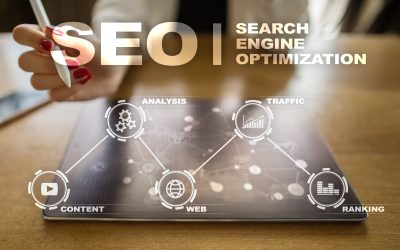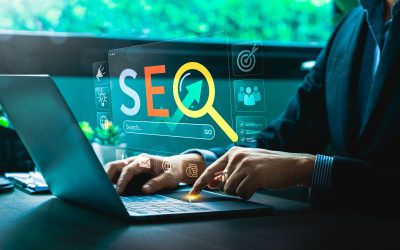Having a strong online presence is crucial for businesses of all sizes. One of the most effective ways to ensure your website ranks well on search engines and attracts organic traffic is through on-page SEO services. Proper on-page optimization involves improving various elements on your website to ensure they align with search engine algorithms, ultimately driving more qualified traffic to your site.
This blog will explore the importance of on-page SEO, the key factors that contribute to effective optimization, and how partnering with an SEO agency or SEO company can help you achieve sustained growth in organic traffic.
What is On-Page SEO?
On-page SEO refers to the practice of optimizing individual web pages to improve their rankings in search engine results pages (SERPs) and drive more organic traffic. While off-page SEO (like backlinks) and technical SEO are also important, on-page SEO is the foundation of any successful SEO strategy. It involves optimizing both the content and HTML source code of your website’s pages to ensure they are aligned with search engine requirements and provide a positive user experience.
By focusing on on-page SEO, businesses can ensure that their content is easily discoverable, readable, and engaging, increasing the likelihood of attracting organic traffic and improving overall website performance.
Key Components of On-Page SEO
Effective on-page SEO involves optimizing several elements of your website. Below are the key factors that contribute to successful on-page SEO optimization:
1. Keyword Research and Optimization
The first step in any on-page SEO strategy is keyword research. Understanding the keywords and phrases your target audience is using to search for products or services like yours is essential for optimizing your website content.
Once you’ve identified the right keywords, you need to strategically incorporate them into your web pages. However, it’s important to avoid keyword stuffing, as this can negatively impact the readability of your content and your search rankings. Instead, focus on using keywords naturally and ensuring they fit seamlessly into your content.
Key places to include keywords for optimal on-page SEO include:
- Page Titles: Make sure your target keyword appears in the title tag of each page.
- Meta Descriptions: This short summary of the page’s content should also include the target keyword to help search engines understand the content of the page.
- Headings (H1, H2, H3): Use headings to structure your content and include keywords where appropriate.
- Content: Naturally integrate keywords into the body of the content while ensuring it remains informative and valuable for your audience.
2. Title Tags and Meta Descriptions
Title tags and meta descriptions are two of the most important on-page elements for SEO. These elements help search engines understand the content of your pages and influence whether users click on your link in the search results.
- Title Tags: The title tag is a key ranking factor and appears in search results as the clickable headline for your page. Make sure your title is concise, includes relevant keywords, and is compelling to encourage clicks.
- Meta Descriptions: The meta description is a short summary (usually 150–160 characters) of the page content. While meta descriptions don’t directly impact rankings, they influence click-through rates. A well-written meta description that includes keywords and entices the reader to click can help increase organic traffic.
3. Content Quality and Length
One of the most important aspects of on-page SEO is creating high-quality, engaging content that provides value to your audience. Search engines prioritize content that answers users’ questions and fulfills their intent, so focusing on user experience and content quality is critical.
- Content Relevance: Ensure your content addresses the needs and interests of your target audience. The more relevant your content, the more likely it is to rank well.
- Content Length: Longer content tends to perform better in search results, as it is often more comprehensive. Aim for a length that fully addresses the topic without being overly verbose.
- Content Updates: Regularly update your content to keep it fresh and relevant. Search engines favor updated content, particularly in industries that experience rapid changes.
4. Internal Linking
Internal linking refers to linking to other pages within your website. This is an important on-page SEO tactic because it helps search engines crawl your site, distributes page authority, and improves user navigation.
- Improved Crawlability: Internal links help search engine bots discover new content and understand the structure of your website.
- Enhanced User Experience: Internal links make it easier for visitors to navigate your site and find relevant information, which can reduce bounce rates and increase time on site.
- Page Authority Distribution: Linking from high-authority pages to pages that need more visibility helps distribute link equity across your site.
5. Mobile Optimization
With the growing number of mobile searches, having a mobile-friendly website is crucial for on-page SEO. Google uses mobile-first indexing, meaning it primarily uses the mobile version of your website to determine rankings. If your site isn’t optimized for mobile, you could be missing out on valuable search traffic.
Key aspects of mobile optimization include:
- Responsive Design: Your website should automatically adjust to fit different screen sizes, ensuring an optimal experience for mobile users.
- Fast Loading Speed: Mobile users expect fast-loading websites. Slow pages can lead to higher bounce rates and lower rankings.
- Usability: Ensure that buttons, links, and forms are easy to interact with on mobile devices.
6. Page Load Speed
Page load speed is a significant ranking factor for SEO, and it also affects user experience. A slow-loading website can lead to high bounce rates and negatively impact your rankings. Several factors can affect page load speed, including large image sizes, unoptimized scripts, and server performance.
Using tools like Google PageSpeed Insights can help you identify and fix issues affecting load speed. Improving page speed will not only boost your SEO but also provide a better experience for your visitors, encouraging them to stay longer on your site.
The Role of an SEO Agency in On-Page Optimization
Implementing on-page SEO effectively can be a complex and time-consuming process. Partnering with a skilled SEO agency can help you streamline your on-page optimization efforts and achieve better results.
A professional SEO agency can provide the expertise and resources needed to create a customized SEO strategy for your business. From keyword research and content creation to technical SEO and optimization, an experienced SEO company can handle all aspects of on-page optimization, ensuring your website ranks well and drives organic traffic.
To learn more about how a credible and reliable marketing agency can help improve your on-page SEO, visit No Boundaries Marketing Group.
Conclusion
On-page SEO is a critical component of any successful digital marketing strategy. By optimizing your website’s content, structure, and technical elements, you can improve your search engine rankings and attract more organic traffic. Implementing on-page SEO services, such as keyword research, content optimization, and mobile optimization, can help your website become more visible, engaging, and user-friendly. Whether you’re looking to handle SEO in-house or partner with an experienced SEO agency, focusing on on-page SEO is a powerful way to boost your online presence and drive growth for your business.


